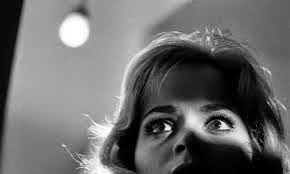Filling in this week and next for Patti Abbott...if I've missed you book, or someone else's, please let me know in comments...thanks!
Todd Mason (and there definitely might be a few more added over the course of the day...very slow web connection this morning/aft slowed delivery today...sorry about that!)
Sergio Angelini: Shroud for a Nightingale by P.D. James
Yvette Banek:
Joe Barone: Mind Scrambler by Chris Grabenstein
Brian Busby: The Temple on the River [aka Les Écœurants] by Jacques Hébert [trans. Gerald Taaffe];
Ingluvin magazine, No. 2, Spring 1971
Bill Crider: 500 Essential Cult Books: The Ultimate Guide by Gina McKinnon with Steve Holland
William Deeck: First Come, First Kill by Francis Allan
Martin Edwards: The Young Vanish by Francis Everton
Curt Evans: Gold Coast Nocturne [aka Dead on the Level] by Helen Nielsen
![]()
Ed Gorman: The Dead Beat by Robert Bloch
Rich Horton: The Haunted Bookshop by Christopher Morley
Jerry House: The Mind Parasites by Colin Wilson
Allen J. Hubin: Vane Pursuit by Charlotte MacLeod; Fangs of the Hooded Demon by Geoffrey Marsh
Randy Johnson: The Crime of the French Cafe as by Nicholas Carter;Sherlock Holmes & Kolchak, The Night Stalker: Cry of Thunder by Joe Gentile, Andy Bennett & Carlos Magno
Nick Jones: Lucifer by Eddie Campbell, Phil Elliott and Paul Grist
Tracy K: The Crow Trap by Ann Cleeves
![]()
George Kelley: Horror: 100 Best Books edited by Kim Newman and Stephen Jones
Margot Kinberg: enabling in mystery novels
Rob Kitchin: Cross of Iron by Willi Heinrich
Marvin Lachman: Death in the Rain by Frank Parrish
K. A. Laity: Wodehouse: A Life by Robert McCrum
B.V. Lawson: Death of a Dutchman by Magdalen Nabb
![]()
Evan Lewis: The Convertible Hearse by William Campbell Gault
Neer: The Human Factor by Graham Greene
John F. Norris: Death on Tiptoe by R. C. Ashby
John O'Neill: To Here and the Easel by Theodore Sturgeon (an abridged UK variant of The Worlds of Theodore Sturgeon)
![]()
Patrick Ohl: The Death of Laurence Vining by Alan Thomas (hosted at Kevin Tipple's blog)
J. Kingston Pierce: Mystery Magazine
James Reasoner: Move Along, Stranger by Frank Castle
Karyn Reeves: The Doors of Sleep by Thurman Warriner
Peter Rosovsky: The Mad and the Bad by Jean-Patrick Manchette
![]()
Ron Scheer: Main-Travelled Roads by Hamlin Garland
Jack Seabrook: "Death of the Kerry Blue" by Henry Slesar (Alfred Hitchcock's Mystery Magazine, November 1968)
"TomCat": The Locked Room by P. J. Bergman
![]()
Prashant Trikannad: "The Dunwich Horror" by H.P. Lovecraft; The Hell Raisers (aka Saddle Pals) by Lee Floren
David Vineyard: The Unseen Hand by Clarence H. New; three British story-paper novels
Keith West: The Sorceror's Ship by Hannes Bok
A. J. Wright: Starett by Arthur V. Deutcsh
Todd Mason (and there definitely might be a few more added over the course of the day...very slow web connection this morning/aft slowed delivery today...sorry about that!)
Sergio Angelini: Shroud for a Nightingale by P.D. James
Yvette Banek:
Joe Barone: Mind Scrambler by Chris Grabenstein
Brian Busby: The Temple on the River [aka Les Écœurants] by Jacques Hébert [trans. Gerald Taaffe];
Ingluvin magazine, No. 2, Spring 1971
Bill Crider: 500 Essential Cult Books: The Ultimate Guide by Gina McKinnon with Steve Holland
William Deeck: First Come, First Kill by Francis Allan
Martin Edwards: The Young Vanish by Francis Everton
Curt Evans: Gold Coast Nocturne [aka Dead on the Level] by Helen Nielsen

Ed Gorman: The Dead Beat by Robert Bloch
Rich Horton: The Haunted Bookshop by Christopher Morley
Jerry House: The Mind Parasites by Colin Wilson
Allen J. Hubin: Vane Pursuit by Charlotte MacLeod; Fangs of the Hooded Demon by Geoffrey Marsh
Randy Johnson: The Crime of the French Cafe as by Nicholas Carter;Sherlock Holmes & Kolchak, The Night Stalker: Cry of Thunder by Joe Gentile, Andy Bennett & Carlos Magno
Nick Jones: Lucifer by Eddie Campbell, Phil Elliott and Paul Grist
Tracy K: The Crow Trap by Ann Cleeves

George Kelley: Horror: 100 Best Books edited by Kim Newman and Stephen Jones
Margot Kinberg: enabling in mystery novels
Rob Kitchin: Cross of Iron by Willi Heinrich
Marvin Lachman: Death in the Rain by Frank Parrish
K. A. Laity: Wodehouse: A Life by Robert McCrum
B.V. Lawson: Death of a Dutchman by Magdalen Nabb

Evan Lewis: The Convertible Hearse by William Campbell Gault
Neer: The Human Factor by Graham Greene
John F. Norris: Death on Tiptoe by R. C. Ashby
John O'Neill: To Here and the Easel by Theodore Sturgeon (an abridged UK variant of The Worlds of Theodore Sturgeon)

Patrick Ohl: The Death of Laurence Vining by Alan Thomas (hosted at Kevin Tipple's blog)
J. Kingston Pierce: Mystery Magazine
James Reasoner: Move Along, Stranger by Frank Castle
Karyn Reeves: The Doors of Sleep by Thurman Warriner
Peter Rosovsky: The Mad and the Bad by Jean-Patrick Manchette

Ron Scheer: Main-Travelled Roads by Hamlin Garland
Jack Seabrook: "Death of the Kerry Blue" by Henry Slesar (Alfred Hitchcock's Mystery Magazine, November 1968)
"TomCat": The Locked Room by P. J. Bergman
.jpg)
Prashant Trikannad: "The Dunwich Horror" by H.P. Lovecraft; The Hell Raisers (aka Saddle Pals) by Lee Floren
David Vineyard: The Unseen Hand by Clarence H. New; three British story-paper novels
Keith West: The Sorceror's Ship by Hannes Bok
A. J. Wright: Starett by Arthur V. Deutcsh





























































.jpg)




























































8 comments:
Despite having just agreed I have too many books, I just went on amazon.com and ordered a copy for one cent plus postage. I guess I am crazy for books, mutter, mutter.